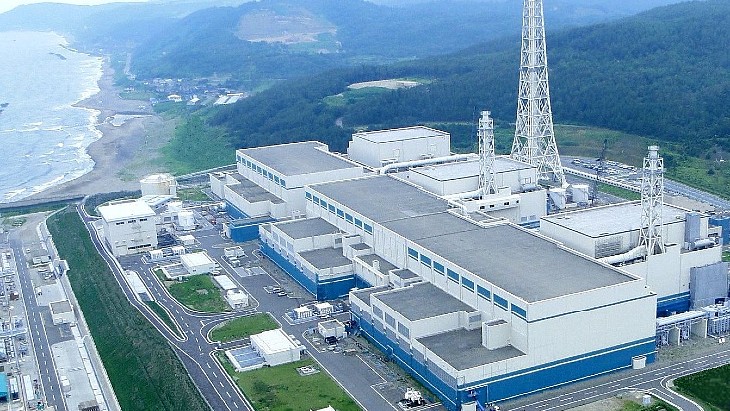Hungary has agreed to further cooperation with Iran on the peaceful uses of nuclear energy, its minister of foreign affairs and trade, Péter Szijjártó, announced last week. Speaking to reporters in Budapest, following talks between Hungarian ministers and Ali Akbar Salehi, head of the Atomic Energy Organization of Iran, Szijjártó said the two countries would "continue and expand" the training of Iranian nuclear experts as well as establish research and scientific cooperation in the use of nuclear energy.
.jpg) |
| Szijjártó and Salehi in Budapest last week (Image: Kovács Tamás/MTI news agency) |
According to Reuters, Salehi has proposed a project with Hungary to design and develop a 25 MWe reactor and another reactor of up to 100 MWe, which could be sold across Asia and Africa while being built in the Islamic republic. Salehi told reporters that small reactors would be more affordable to poorer countries and need less cooling water.
"It requires a lot of scientific work to come up with such a design, certainly a number of years of hard work. We want to see if we can do this," Salehi said.
Iran plans to build two more Russian-designed large reactors in addition to its current single reactor at the Bushehr nuclear power plant. On completion of this project, which Salehi said could take ten years, Iran would look into building small reactors.
According to a Hungarian government statement, some 1100 Iranian students are studying at the country's universities and more would be welcome.
Szijjártó noted that relations between Iran and the international community on global security had "improved significantly", adding that the the Joint Comprehensive Plan of Action (JCPOA) was "of great importance". The JCPOA, the international agreement limiting Iran's nuclear program in return for the lifting of economic sanctions was signed in July by Iran and the E3/EU+3 (China, France, Germany, Russia, the UK and the USA - also referred to as the P5+1 - plus the European Union).
Researched and written
by World Nuclear News





_91467.jpg)
_47120.jpg)
_16439.jpg)





